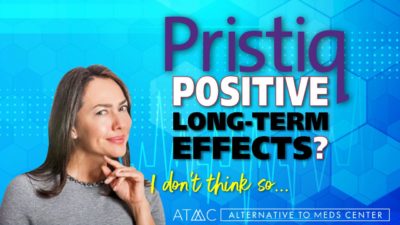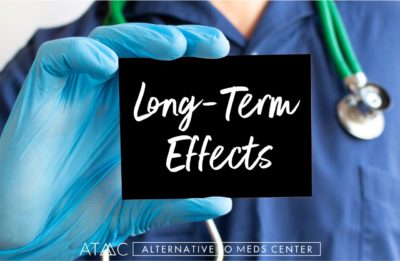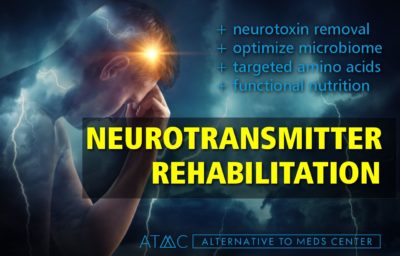1. FDA drug label Pristiq (desvenlafaxine extended release tablets) approval 2008 [cited 2022 Nov 23]
2. Naseeruddin R, Rosani A, Marwaha R. Desvenlafaxine. [Updated 2022 Jul 11]. In: StatPearls [Internet]. Treasure Island (FL): StatPearls Publishing; 2022 Jan-. Available from: https://www.ncbi.nlm.nih.gov/books/NBK534829/ [cited 2022 Nov 23]
3. Strawn JR, Geracioti L, Rajdev N, Clemenza K, Levine A. Pharmacotherapy for generalized anxiety disorder in adult and pediatric patients: an evidence-based treatment review. Expert Opin Pharmacother. 2018 Jul;19(10):1057-1070. doi: 10.1080/14656566.2018.1491966. PMID: 30056792; PMCID: PMC6340395. [cited 2022 Nov 23]
4. Clincalc Report Desvenlafaxine Drug Usage Statistics, published online 2020 [cited 2022 Nov 23]
5. Colvert M D, Key Differences between Venlafaxine XR and Desvenlafaxine: An Analysis of Pharmacokinetic and Clinical Data published in Volume 4, Issue 1, Jan 12014 of the Mental Health Clinician Journal [cited 2022 Nov 23]
6. Lim GY, Tam WW, Lu Y, Ho CS, Zhang MW, Ho RC. Prevalence of Depression in the Community from 30 Countries between 1994 and 2014. Sci Rep. 2018 Feb 12;8(1):2861. doi: 10.1038/s41598-018-21243-x. Erratum in: Sci Rep. 2022 Sep 1;12(1):14856. PMID: 29434331; PMCID: PMC5809481. [cited 2022 Nov 23]
7. Danborg PB, Valdersdorf M, Gøtzsche PC. Long-term harms from previous use of selective serotonin reuptake inhibitors: A systematic review. Int J Risk Saf Med. 2019;30(2):59-71. doi: 10.3233/JRS-180046. PMID: 30714974; PMCID: PMC6839490. [cited 2022 Nov 23]
8. Bet PM, Hugtenburg JG, Penninx BW, Hoogendijk WJ. Side effects of antidepressants during long-term use in a naturalistic setting. Eur Neuropsychopharmacol. 2013 Nov;23(11):1443-51. doi: 10.1016/j.euroneuro.2013.05.001. Epub 2013 May 30. PMID: 23726508. [cited 2022 Nov 23]
9. Bockting CL, Spinhoven P, Wouters LF, Koeter MW, Schene AH; DELTA Study Group. Long-term effects of preventive cognitive therapy in recurrent depression: a 5.5-year follow-up study. J Clin Psychiatry. 2009 Dec;70(12):1621-8. doi: 10.4088/JCP.08m04784blu. PMID: 20141705. [cited 2022 Nov 23]
10. Sheffler ZM, Patel P, Abdijadid S. Antidepressants. [Updated 2022 Sep 21]. In: StatPearls [Internet]. Treasure Island (FL): StatPearls Publishing; 2022 Jan-. Available from: https://www.ncbi.nlm.nih.gov/books/NBK538182/ [cited 2022 Nov 23]
11. Harmer CJ, Duman RS, Cowen PJ. How do antidepressants work? New perspectives for refining future treatment approaches. Lancet Psychiatry. 2017 May;4(5):409-418. doi: 10.1016/S2215-0366(17)30015-9. Epub 2017 Jan 31. PMID: 28153641; PMCID: PMC5410405. [cited 2022 Nov 23]
12. Moncrieff J, Cooper RE, Stockmann T, Amendola S, Hengartner MP, Horowitz MA. The serotonin theory of depression: a systematic umbrella review of the evidence. Mol Psychiatry. 2022 Jul 20. doi: 10.1038/s41380-022-01661-0. Epub ahead of print. PMID: 35854107. [cited 2022 Nov 23]
13. Berhan Y, Berhan A. Is desvenlafaxine effective and safe in the treatment of menopausal vasomotor symptoms? A meta-analysis and meta-regression of randomized double-blind controlled studies. Ethiop J Health Sci. 2014 Jul;24(3):209-18. doi: 10.4314/ejhs.v24i3.4. PMID: 25183927; PMCID: PMC4141224. [cited 2022 Nov 23]
14. Cartwright C, Gibson K, Read J, Cowan O, Dehar T. Long-term antidepressant use: patient perspectives of benefits and adverse effects. Patient Prefer Adherence. 2016 Jul 28;10:1401-7. doi: 10.2147/PPA.S110632. PMID: 27528803; PMCID: PMC4970636. [cited 2022 Nov 23]
15. Oude Rengerink K, Logtenberg S, Hooft L, Bossuyt PM, Mol BW. Pregnant womens’ concerns when invited to a randomized trial: a qualitative case control study. BMC Pregnancy Childbirth. 2015 Sep 4;15:207. doi: 10.1186/s12884-015-0641-x. PMID: 26341516; PMCID: PMC4560072. [cited 2022 Nov 23]
16. Cui Y, Gong Q, Huang C, Guo F, Li W, Wang Y, Cheng X. The relationship between sunlight exposure duration and depressive symptoms: A cross-sectional study on elderly Chinese women. PLoS One. 2021 Jul 16;16(7):e0254856. doi: 10.1371/journal.pone.0254856. PMID: 34270627; PMCID: PMC8284632. [cited 2022 Nov 23]
17. Miyake Y, Tanaka K, Okubo H, Sasaki S, Arakawa M. Dietary vitamin D intake and prevalence of depressive symptoms during pregnancy in Japan. Nutrition. 2015 Jan;31(1):160-5. doi: 10.1016/j.nut.2014.06.013. Epub 2014 Jul 19. PMID: 25466661. [cited 2022 Nov 23]
18. Baglioni C, Battagliese G, Feige B, Spiegelhalder K, Nissen C, Voderholzer U, Lombardo C, Riemann D. Insomnia as a predictor of depression: a meta-analytic evaluation of longitudinal epidemiological studies. J Affect Disord. 2011 Dec;135(1-3):10-9. doi: 10.1016/j.jad.2011.01.011. Epub 2011 Feb 5. PMID: 21300408. [cited 2022 Nov 23]
19. Allan BA, Dexter C, Kinsey R, Parker S. Meaningful work and mental health: job satisfaction as a moderator. J Ment Health. 2018 Feb;27(1):38-44. doi: 10.1080/09638237.2016.1244718. Epub 2016 Nov 12. PMID: 27841056. [cited 2022 Nov 23]
20. Brown JS Jr. Psychiatric issues in toxic exposures. Psychiatr Clin North Am. 2007 Dec;30(4):837-54. doi: 10.1016/j.psc.2007.07.004. PMID: 17938048. [cited 2022 Nov 23]
21. Orisakwe OE. The role of lead and cadmium in psychiatry. N Am J Med Sci. 2014 Aug;6(8):370-6. doi: 10.4103/1947-2714.139283. PMID: 25210669; PMCID: PMC4158644. [cited 2022 Nov 23]
22. Siesser WB, Sachs BD, Ramsey AJ, Sotnikova TD, Beaulieu JM, Zhang X, Caron MG, Gainetdinov RR. Chronic SSRI treatment exacerbates serotonin deficiency in humanized Tph2 mutant mice. ACS Chem Neurosci. 2013 Jan 16;4(1):84-8. doi: 10.1021/cn300127h. Epub 2012 Oct 1. PMID: 23336047; PMCID: PMC3547473. [cited 2022 Nov 23]

 Opinion and laboratory studies on animals seem to be the most prevalent bases for the various theories.10
Opinion and laboratory studies on animals seem to be the most prevalent bases for the various theories.10 Long-term drug therapy, typically referred to as “maintenance,” is the most commonly used strategy in the treatment of depression.8 Clinical studies on long-term antidepressant use, in general, are rare. Despite this, international recommendations continue to suggest treatment continue over long periods, even life-long, to avoid “relapse.” A review published in the Journal of Affective Disorders did a massive search and could only find 12 studies lasting at least ten years with reported follow-ups. The authors observed that 25% of the participants taking antidepressants reported their symptoms improved. That means that 75% did not. In the non-drug-treated group of participants, no worse outcomes were reported. No relationship could be determined between improved symptoms and drug treatment, no advantage could be associated with long-term drug therapy, and no evidence was found to support encouraging long-term antidepressant therapy.7
Long-term drug therapy, typically referred to as “maintenance,” is the most commonly used strategy in the treatment of depression.8 Clinical studies on long-term antidepressant use, in general, are rare. Despite this, international recommendations continue to suggest treatment continue over long periods, even life-long, to avoid “relapse.” A review published in the Journal of Affective Disorders did a massive search and could only find 12 studies lasting at least ten years with reported follow-ups. The authors observed that 25% of the participants taking antidepressants reported their symptoms improved. That means that 75% did not. In the non-drug-treated group of participants, no worse outcomes were reported. No relationship could be determined between improved symptoms and drug treatment, no advantage could be associated with long-term drug therapy, and no evidence was found to support encouraging long-term antidepressant therapy.7 Long-term effects of Pristiq may include:
Long-term effects of Pristiq may include: Since toxic exposures related conditions are the number one culprit that we find through lab testing,
Since toxic exposures related conditions are the number one culprit that we find through lab testing, 







